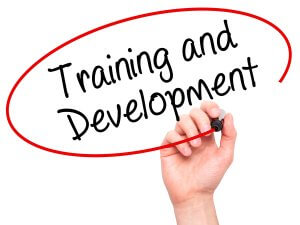 Many of the government led training initiatives are focused on the skill development of younger employees. But with 9.4 million people in employment over the age of 50 in the UK, representing 30% of the total workforce, should we ignore our older employees when it comes to providing training and development opportunities?
Many of the government led training initiatives are focused on the skill development of younger employees. But with 9.4 million people in employment over the age of 50 in the UK, representing 30% of the total workforce, should we ignore our older employees when it comes to providing training and development opportunities?
New research shows older workers in Britain are, compared to younger employees, deprived of formal performance appraisals and discriminated against when it comes to the provision of training opportunities. Furthermore, the research suggests that this lack of investment in older workers is having a significant negative impact on UK businesses. This problem is likely to become worse because the relative reduction of pension provision, the removal of the default retirement age and improved general health and life expectancy all mean the presence of older workers in the workforce will rise.
The findings come from Dr Wen Wang who is a senior lecturer in Managerial Economics at the University of Wolverhampton.
Dr Wen’s research was based on data from approximately 1,500 companies in Britain, France and Germany. His research suggested that the lack of training and development opportunity given to mature workers in the UK has led to a decrease in overall labour productivity when compared to their French or German counterparts.
It is certainly true that older workers in the UK are often seen as either not requiring training or not wanting training. Both of these are usually assumptions on behalf of their line manager rather than facts. Indeed, when given a meaningful appraisal, the need and desire for further development by older employees quickly becomes apparent.
Well-targeted refresher training helps to ensure that experienced older workers retain their ability to contribute in innovative ways to the business. And whilst it is often true that older workers are not as interested in obtaining formal qualifications as younger employees are, they are certainly more than keen to brush up their existing business skills or to develop a new skill set in order to take on new roles and responsibilities.
The conclusions are obvious: managers of older employees should ensure that the appraisal discussions they hold with their older employees includes a discussion about training and development requirements. The increase in skills, motivation and labour productivity providing practical and pragmatic training produces means the investment quickly pays for itself.
